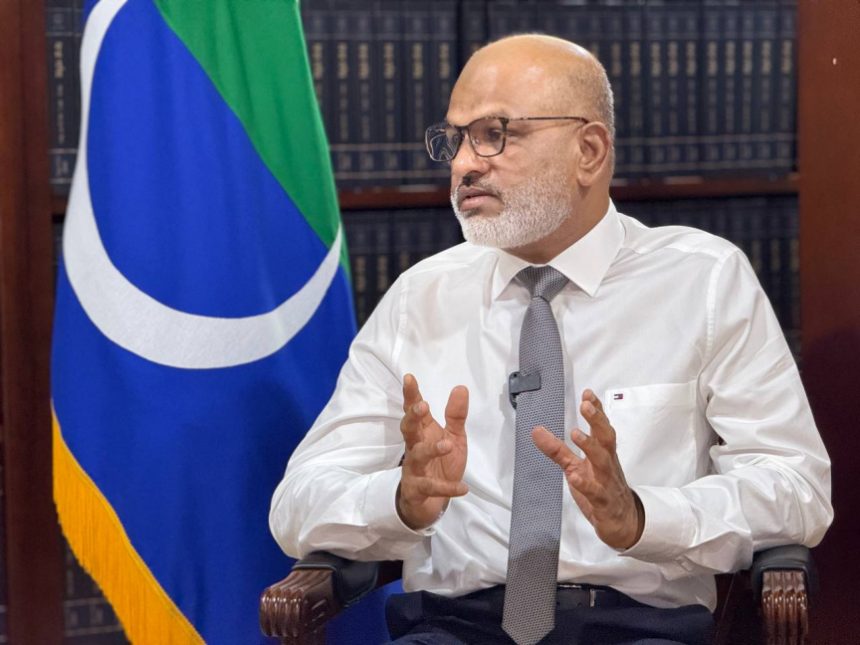In a move that has alarmed press freedom advocates, Deputy Speaker of the People’s Majlis, Ahmed Nazim, has announced on a interview given to Sun Media that he plans to introduce a bill aimed at regulating journalism and internet resources in the Maldives. Nazim argues that the current system lacks effective self-regulation, necessitating robust legislative intervention.
Background
This development follows the recent withdrawal of the Maldives Media and Broadcasting Commission Bill, which faced significant backlash from journalists and media organizations. Critics contended that the bill would severely restrict the constitutional right to freedom of the press and impose serious obstacles on the work of journalists.
Nazim’s Concerns
Nazim has expressed concerns over the media’s current practices, stating that journalists need to be more responsible and that self-regulation has been ineffective. He cited instances where television stations broadcast inappropriate content and discuss unverified information, leading to a call for stricter oversight.
Media Freedom Advocates’ Response
However, media freedom advocates argue that such regulatory measures could lead to undue government influence over the press, undermining its role as a watchdog of democracy. In past Maldives Journalists Association (MJA) has emphasized the importance of maintaining a self-regulatory mechanism for the media, warning that government intervention could push the freedom of the media in the country backwards for many years.
Proposed Internet Regulation
The proposed bill also seeks to regulate internet usage, with Nazim highlighting concerns over crimes committed through platforms like Telegram and Viber. While addressing cybercrime is essential, there is apprehension that broad regulatory measures could infringe upon digital freedoms and stifle online expression.
Context of Press Freedom in the Maldives
This move comes amid a broader context of challenges to press freedom in the Maldives. In recent years, the country has seen a decline in its World Press Freedom Index ranking, dropping 18 places since 2021. Incidents such as the 2017 murder of blogger Yameen Rasheed and the enforced disappearance of journalist Ahmed Rilwan in 2014 have underscored the dangers faced by media practitioners in the nation.
Conclusion
As the government prepares to present this bill, it is crucial to balance the need for responsible journalism with the fundamental right to freedom of expression. Overregulation risks creating a media environment where fear and censorship prevail, ultimately depriving the public of unbiased and critical information.
The Maldives’ constitution guarantees freedom of the press, stating that “no person shall be compelled to disclose the source of any information that is espoused, disseminated, or published by that person.” It is imperative that any proposed legislation upholds these constitutional protections and does not erode the hard-won gains in press freedom.
As the bill is set to be presented in the upcoming Majlis session, stakeholders, including journalists, media outlets, and civil society organizations, must engage in open dialogue to ensure that the legislation fosters a free, responsible, and vibrant press, rather than imposing constraints that could stifle democratic discourse.




